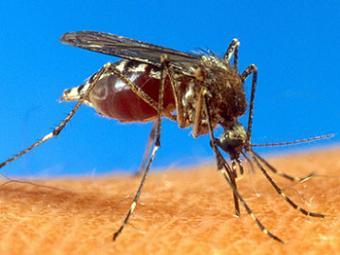
Section Branding
Header Content
Teaching with Mosquitoes
Primary Content

Mosquitoes are a pervasive nuisance, though not just in the tropics. However, especially in tropical locations, mosquitoes are more than just a nuisance, they are also a serious health hazard. Mosquitoes carry a number of infectious diseases, including malaria, yellow fever, encephalitis, and as recently as 2010 was responsible for an outbreak of dengue fever in Florida.
This week, Key West, Florida has been in the news regarding the options for eradicating the insects. The ultimate goal is to prevent the spread of infectious disease, in particular, dengue fever. British biotechnology company Oxitec Ltd. has come up with a solution: genetic mutations. Oxitec's system introduces sterile males into the mosquito population, who thenmate with females, reducing mosquito birth rates. And, when one female mosquito can lay 70-80 eggs at a time and around 500 in its lifetime, it is easy to see how a new population of sterile males could significantly effect infection reduction.
It’s worth noting that there are a variety of mosquito species just like there are a variety of dog species. This particular variety is the Aedes aegypti mosquito, the only one which carries dengue fever, and it is resistant to chemical treatment, for which the locals in Key West voted as a treatment option. At any time, 20-40% of homes in Key West have mosquitoes carrying dengue fever, according to test from traps. As it happens, Key West has a Mosquito Control Board who deals directly with – you guessed it – mosquito control. Using trucks and even helicopters to spray the islands to prevent the pests has been problematic. For one, it’s quite costly. It also kills all insects, not just mosquitoes, which have proven rather immune to such treatment. Also, residents and pets must be kept inside during the process for safety.
Places like Brazil and Malaysia have seen a decrease of as much as 80% in the Aedes aegypti population using Oxitec’s sterilized mosquitoes. But, some residents are concerned about what insect would replace mosquitoes both as pests and as important players in the food chain of the local ecology. Would this genetic mutation last, or would it even lead to other, less-favorable traits in the pests?
Currently, this sterilized males as a treatment is awaiting approval from the FDA, so the area is making do with the options it has available.
This article is a representative example of using current events to teach persuasive writing. Have students read the article and pick a side: spray, sterilize, or nothing for mosquito control. Students in elementary through high school could use the article to exercise group debates. It holds multiple possibilities for use in science classes and even ethics discussions. Ultimately, all of these modes utilize critical thinking skills, evaluating information to draw conclusions, make inferences, assess variables and assume conclusions.
And for the very young, share this book, which I remember from my favorite show as a child, Reading Rainbow. New Hampshire Public television has thisanimated read-aloud of the book Why Mosquitoes Buzz People’s Ears available online. It's great for showing cause and effect and reasoning skills.
Watch Why Mosquitoes Buzz in People's Ears on PBS. See more from WENH.





